Raytheon Technologies have now announced the successful completion of the merger between Raytheon Company and United Technologies.
The merger creates one of the world’s largest aerospace companies.
According to a statement from the firm:
“Raytheon Company (NYSE:RTN) shares ceased trading prior to the market open on April 3, 2020, and each share of Raytheon common stock has been converted in the merger into the right to receive 2.3348 shares of United Technologies common stock (previously traded on the NYSE under the ticker symbol “UTX”). Upon closing of the merger, United Technologies’ name has changed to “Raytheon Technologies Corporation,” and its shares of common stock will begin trading today on the NYSE under the ticker symbol “RTX.” United Technologies shareowners will continue to hold their shares of United Technologies common stock, which now constitute shares of common stock of Raytheon Technologies Corporation.
Raytheon Technologies has a large, talented workforce to address the rapidly evolving needs of customers globally. The combined company expects to introduce breakthrough technologies at an accelerated pace across high-value areas such as hypersonics, directed energy, avionics and cybersecurity. In addition, Raytheon Technologies has a strong balance sheet and cash flows to support critical business initiatives, including company and customer-funded R&D.”
“Raytheon Technologies brings together two companies with combined strengths and capabilities that make us uniquely equipped to support our customers and partners during this unprecedented time. We will also play our part in the war on the COVID-19 pandemic, including doing everything we can to keep our employees around the globe safe and well,” said Greg Hayes, CEO of Raytheon Technologies.
“As we move forward, Raytheon Technologies will define the future of aerospace and defense through our focus on innovation, our world-class people and our financial and operational strength to create long-term value for our customers and shareowners.”




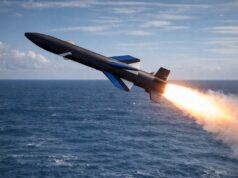
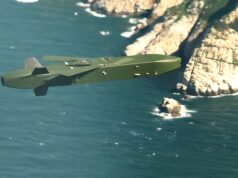

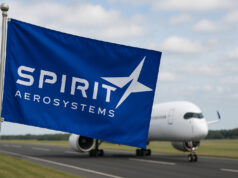
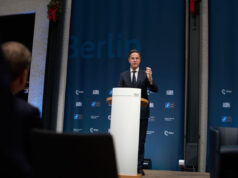
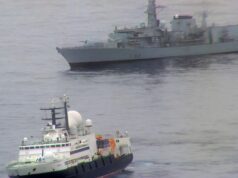

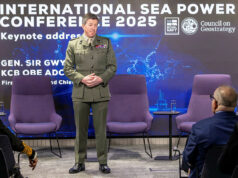

Innovation is not about scale. The new company will perhaps hope to buy in other people’s creativity. However, lots of chaps and chapesses in the merchant banking empires have made a mint.
Innovation is not about scale-exactly, and in this statement we have illustrated one of the most vexing aspects of ‘Free Enterprise’.Whatever one thinks of Marx he has to be credited with correctly predicting Capitalism’s major ills-in this case the concentration of economic clout. When these mergers occur, the people involved always trot out the same old stories about improved efficiency and myriad benefits for the consumer.Inevitably these benefits seldom materialise and the result is generally a further consolidation of the bloc that operates thus-these are our(liberal) costs and this is our comfortable margin, and thus here is the price! There may be a few good men in all of this but Monopolies and Oligopolies are almost always bad in general terms. Think of the thriving diverse and innovative Aerospace sector in the UK after the war.-OK there had to be some consolidation but compare it to the situation today and ask the necessary questions
PS and btw I am an enthusiastic Free Enterprise man but Capitalism needs some work. At present it is the best of a bad lot!
You are by some way braver than I. I thought my comment might seem out of place at best, irrelevant to UK Defence bread and butter issues at worse. I will only say, beyond agreeing with your comment’s direction, that the man who the free market enthusiasts venerate, Adam Smith, warned us about the power of monopolies and negative consequences to the public interest – had they bothered to read him. One can perhaps romanticise the ‘men in sheds’ side of originality and innovation but only due to it containing a truth of sorts. Corporate structures are often the issue, not capitalism. See how the Soviet Union mirrored the worst aspects of Big Business with bewildering bureaucracies and chains of hierarchies.
Good Morning Barry.The topic itself is only on the periphery of the broad interest that UKDJ serves and the fact that you and I are the only contributors here pretty much illustrates that. The specifics of this particular merger were not what piqued my interest-rather the phenomenon about which both Smith and Marx had their meeting of minds from both ends of the political spectrum! I am always very aware of trying to stay on topic and not offend our host George Allison by abusing this wonderful forum-hence my remarks on the British Aviation industry in the 1950’s in an attempt to take the curse off it 🙂 My late RAF pal Dave H and I would often spend time over a pint recalling the names of defunct British Aircraft Manufacturers from that time-I think we managed close to twenty!
Folland, Blackburn, Fairey, Handley Page, Avro, English Electric, Gloster, Supermarine, Vickers, Hawker, Sopwith, Shorts, Westland, De Havilland, Saunders-Roe….all from memory-no Aunty Google!! 🙂
There were a lot of British companies, some very obscure to me even today. I like Miles aircraft; they seemed to be an example of what a small company with imagination could do. But there is more to this than enthusiasm. I often thought the last thing say railways enthusiasts would wish to do would be to run a railway day to day. It is the details and washing up. I agree George does a marvellous job; that is all about details and lots of tedious, unglamorous chores to produce such a marvellous website.